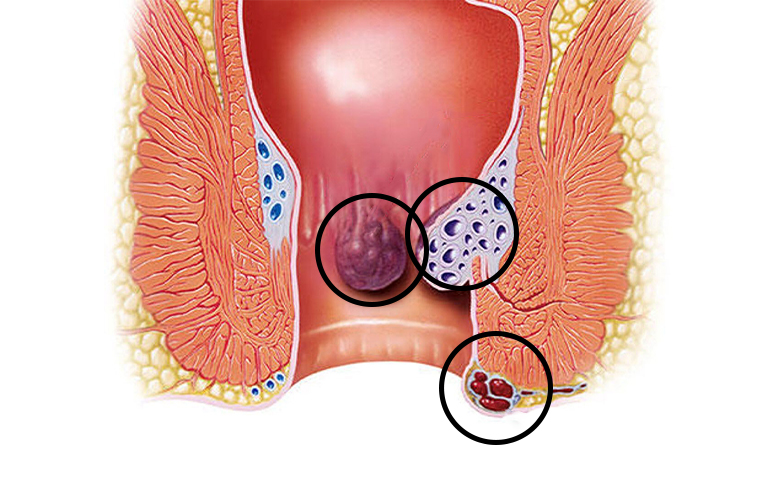
Hemorrhoids, also known as hemorrhoids, is the enlargement of the veins in the wall at the lowest part of the rectum and anus and their prolapse out of the anal canal, causing some complaints.
Hemorrhoids are divided into two as internal and external hemorrhoids, and internal (internal) hemorrhoids are evaluated in four degrees according to their degrees.
What Causes Hemorrhoids?
The main cause of hemorrhoids is increased pressure or high volume of blood flow in the veins in the rectal area.
This situation may occur due to straining and straining while using the toilet, occupations that lift heavy loads, obesity, during pregnancy, if a low-fiber diet is constantly followed, if a life away from exercise is experienced, or due to sexual traumas, especially with those with constipation. People who stand or sit without changing positions for very long periods are also at risk.
Therefore, constipation should be prevented. Warm sitz baths can relieve pain. If recommended by the physician, various creams and suppositories can be used in the treatment of hemorrhoids.
Again, diarrhea or constipation that does not go away for a long time triggers the formation of hemorrhoids (hemorrhoids).
Hemorrhoids cause complaints such as brightly colored rectal bleeding, breast enlargement with defecation, pain, especially after stool. Rarely, thrombosed hemorrhoids occur as a result of blood clotting inside the hemorrhoids. Severe pain occurs, and one breast swells and bruises. Since they impair the patient's quality of life, they need to be treated quickly.
Hemorrhoids Treatment
An appropriate treatment plan will be determined by the doctor based on how severe the symptoms are. Lifestyle changes, medical drugs and surgical interventions are the methods used among hemorrhoids (hemorrhoids) treatments.
Even though these methods can easily treat hemorrhoids, the probability of hemorrhoids recurring increases if the conditions that cause hemorrhoids are not changed. Simple lifestyle changes can usually resolve mild hemorrhoid complaints within 2 to 7 days. Fiber consumption will facilitate the passage of nutrients through the intestines.
Therefore, it can prevent constipation. Warm sitz baths can relieve pain. If recommended by the physician, various creams and suppositories can be used in the treatment of hemorrhoids.
For the treatment of hemorrhoids, if any, the underlying problems such as constipation or diarrhea are eliminated and the bowel functions are regulated. If the symptoms do not resolve spontaneously, drug therapy is applied. During drug therapy, different drug forms are used in the form of oral medication, suppositories, creams, and ointments.
Depending on the patient's complaints and the degree of hemorrhoids, it may be necessary to apply surgical treatment to the patient. Surgical treatment options include band ligation, sclerotherapy, hemorrhoidectomy with conventional surgical methods, stapled hemorrhoidectomy or laser/radiofrequency hemorrhoidectomy operations.
The most appropriate treatment selection is taken by the joint decision of the physician and the patient.

